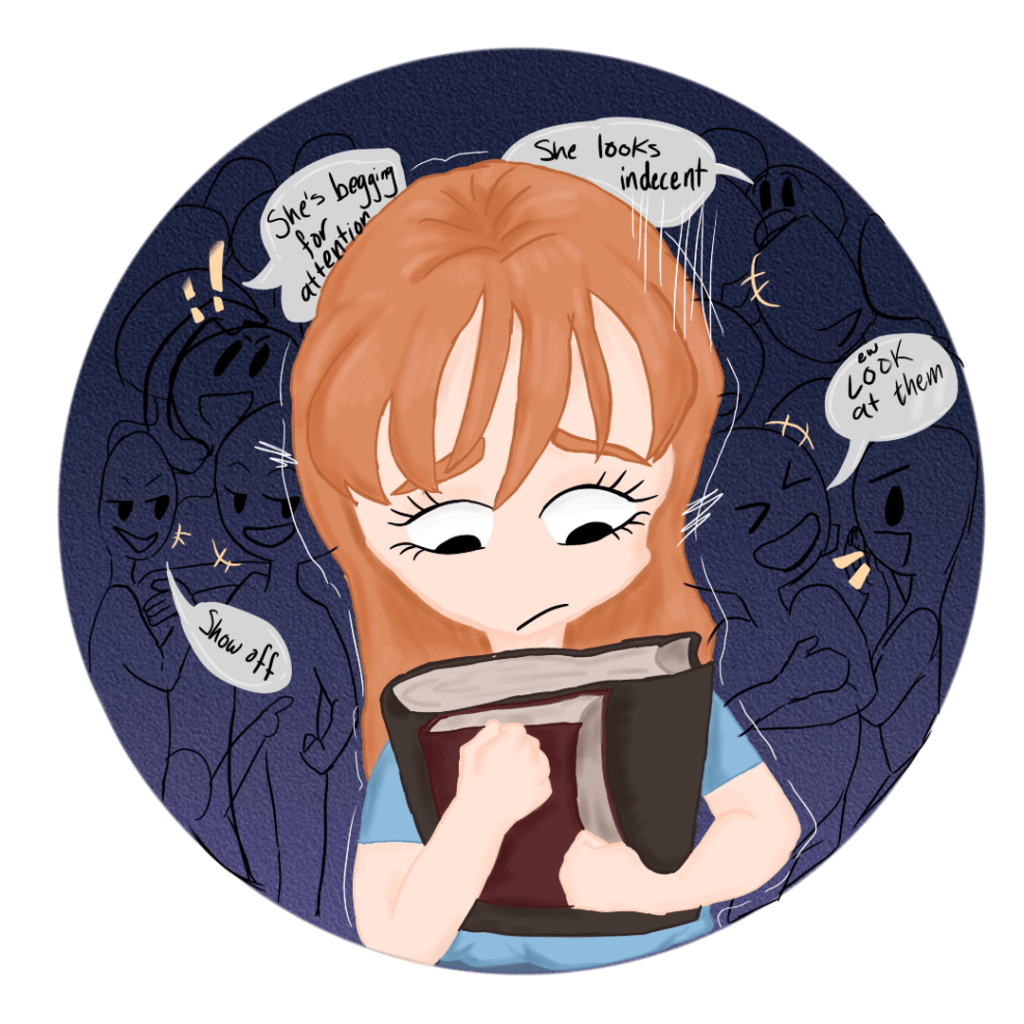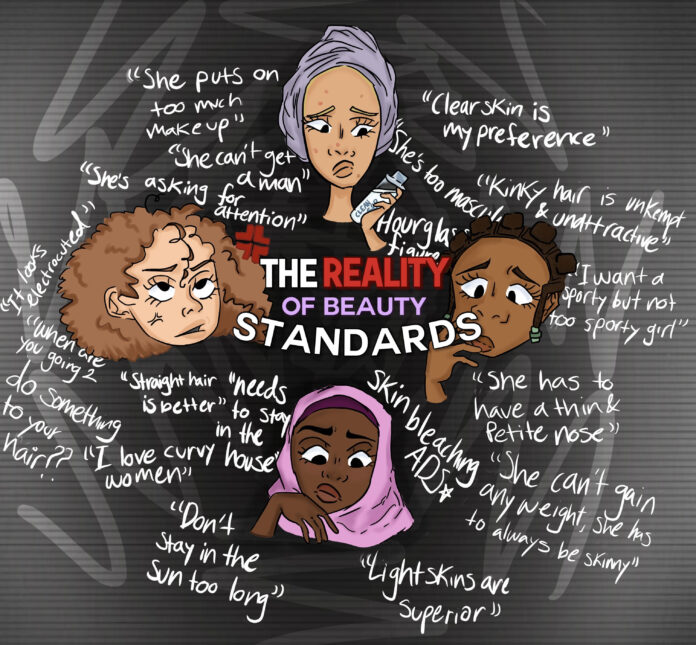Photo Credit: Savannah Shamamba
In a society where perceptions of beauty have long been confined, it’s become even more difficult to be a teenager in today’s world.
High school is a time known for self-discovery and change. It is a period when we’re forced to face societal beauty standards head-on. It’s common that teenagers find themselves in a situation where appearances often carry significant weight within their peer groups.
Being accepted as a “beautiful,” person can carry a lot of social value and pretty privilege.
Imagine waking up before school, feeling insecure about how you look, are you attractive enough? Can your makeup impress others? Do your clothes compliment you? And is your overall appearance attractive?
Is the Pressure Real?
After interviewing a few dozen students, there was a clear inclination in how both girls and boys look at beauty standards.
The girls interviewed all expressed that ICSA’s community has a common set of beauty standards that are unrealistic. These 14 to 18-year-old girls feel the pressure of those standards daily.
But is the pressure they feel justified?
The guys thought that the beauty standards weren’t as exaggerated or prominent within the school community as expressed by the girls.
They thought their ‘type’ was just a personal preference and fully justified, regardless of how realistic or unrealistic it was.
Colorism on Campus
All the interviewees have, however, agreed on one common point. That colorism and race are a problem within the beauty standard.
Western beauty standards, constantly shown through media and pop culture, have undeniably influenced perceptions of beauty worldwide. Even as high school students, this is noticeable on social media like Instagram, TikTok, and even in real life.
“Especially for girls, there is a lot of colorism and people, especially boys, favor and think of light skinned girls as prettier, which I think is unfair.”
Anonymous, Grade 12
The phenomenon of masculinization of black women is a concerning aspect of beauty standards that stems from historical stereotypes and biases.
Being a woman means you have to have a certain type of body, look a certain type of way, and present yourself to be feminine.
Western ideals of femininity often clash with the natural features of black women, including but not limited to facial features, skin tone, hair texture, and body types. “I’m personally not attracted to black girls; it’s just my preference because I find them less pretty.” says an anonymous grade 10 student.
Over half of the people interviewed, all students of color, have said that they have changed things about themselves to appeal to a Western standard. “When I was in middle school, I relaxed my hair because I was told that it’s better to have straight hair. I hated my natural hair.” says an anonymous 12th grader.
Although evident, many of the guys haven’t caught on to these changes.
ICSA’s Thoughts
In a recent survey and series of interviews conducted at ICSA, high school students opened up about their perceptions of beauty, uncovering a set of preferences that unfortunately follow conventional norms.
The survey not only unveiled trends within male students’ preferences, but also showcased the pressure that female students face on a daily basis due to beauty standards.
“I have changed myself to be more attractive to a guy I liked, in the long term it just made me more insecure of who I am.”
Anonymous, Grade 10
Male students between 10th and 12th grade expressed a majority of preference for an athletic build, hyper-feminine features, and lighter skin tones. This preference reflects the broader impact of historical and cultural influences on perceptions of attractiveness in ICSA.
Adding a level of depth and revealing a deeper issue when it comes to the beauty standards observed within the school community.
Does Uniform Help or Harm?
What role does uniform play on beauty standards, if any? An anonymous grade 12 student shared an experience from when the uniform was being enforced. She shared that she had to get a size up from what she usually buys because her mother was told that “girls usually get something that’s too tight on their body, and it’s distracting at school.” This made her both insecure and uncomfortable.
“…When you see two people wearing the exact same thing [school uniforms], but one’s body part is extenuated more than someone else. People start to point out differences, and it makes people more aware of beauty standards and the ideal beauty type” stated an anonymous 12th grader.

According to the interview, there is a lot of objectification and shaming among students on campus. The way people view women’s bodies is described as disgusting, offensive, and disrespectful.
“Even in middle school when a girl would wear the PE shorts, and they were just a bit tight… everyone would be judging her and asking her why she felt the need to be showing off her body.”
Anonymous, Grade 12
The psychological impact of conforming to beauty standards cannot be understated.
The interviews conducted unveiled a common theme: among the female students – a struggle with self-esteem and self-worth.
Many expressed feeling the need to alter themselves physically or behaviorally in order to meet expectations. On top of already evident issues, pressure to adhere to an unrealistic standard can contribute to anxiety, depression, and a distorted self-image.
It’s important to embrace all forms of beauty, regardless of skin color, body shape, or facial features, as it fosters an environment where every student feels valued for who they are. High schools, as a major part of society, have the power to lead by example.



Love the Images !
The first image makes is so deep ☺️